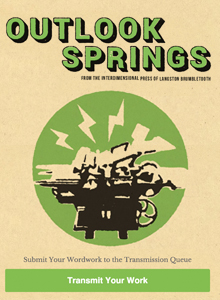A few days ago K.T. Bradford wrote a piece for xojane challenging her readers to not read white, straight, cis male authors for a year, following a similar thread of such challenges to expand the diversity of voices in our reading lives.
Because traditional, mainstream publishing (and hell, even smaller-scale publishing as well) is heavily skewed toward the very demographic Bradford is asking us to avoid.
But I keep seeing people making the argument that the demographics of the writers shouldn’t matter, that we should merely judge the writing by the merits of the writing itself, that we’re “obsessing about authors” and how it’s “pretty juvenile” to make “arbitrary assumptions about authorship.”
At first glance, I can see merit in this sort of divorce of the author from the text. It makes sense, right. Of course you can judge a book without its cover, without its context. After all, literary criticism has been doing that for years, the whole “death of the author” movement.
However, as Adam Shapiro points out,
“The school of literary criticism that emphasizes the text alone as something that can be assess as a thing itself independent of the identities of either the author or the readers emerged as a specific movement largely among White Male Americans, largely from the South. It was a self-conscious effort to make the qualities of literature typically found in [mostly] white [mostly] Southern [mostly] male authors into the “objective” standard against which something like the “quality of the text” can be judged.
There are problems that arise with not seeing works of literature as products of the cultures that create them. But there’s the additional problem that claims that there are objective standards to judge the quality of literature can only work if one sees their own culture as a universal standard.”
It’s the literary wing of the invisible knapsack of privilege in which the first privilege is to be able to be unaware or ignorant of your privilege. In the case of using the death of the author in this way, it’s deliberately turning a blind eye.
And personally, I’m more concerned that if someone is reading primarily texts from one tiny spectrum of human experience, in this case, white male straight cis, we’re missing out on a huge swath of what its like to live on this planet, millions of different approaches toward the questions that literature concerns itself with. And primarily, most people are reading—and the publishing industry is primarily concerned with—that one tiny spectrum of human experience.
I continue to think of it in terms of empathy. Study after study has shown that reading literature increases empathy in its readers. When we live lives through other people’s words, we see them as individuals, which makes othering, that very important step in dehumanizing our fellow people, all the more difficult.
Because othering is what leads to discrimination, war, and that whole host of human ugliness that shames us as a species. Think of what John Hersey’s New Yorker article about Hiroshima did to humanize the victims and contextualize what it meant use such a weapon, or how the media bringing the up-close-and-personal ugliness of wartime Vietnam into our living rooms brought that war to an earlier close, or how Daryl Davis is converting KKK members merely by talking to them.
Because it’s this power of narrative that drives empathy—to get downright cliché about it—it’s the other man’s shoes thing. And all Bradford is saying is that we’ve all, consciously or not, been walking around primarily in one pair of shoes for a really really long time, and maybe, just maybe, it wouldn’t hurt to wear a different pair for a while, to try another path. Just try it.
It won’t hurt anyone if some people choose to concentrate on perspectives they may not usually read, voices not often trumpeted by the status quo publishing industry. And I’m saying this as a straight, white cis male author early in his career who needs as many people as possible to read his work. I should be the first at the regressive picket line arguing about how authorship demographics shouldn’t matter. But I’m not, because it hurts no one. There are plenty of voices, plenty of readers. And such challenges may just help some people who prior to this, only read from a narrow spectrum of the human experience, which frankly, isn’t healthy for us, as individuals or as a species.
 It’s only like $12 a year. CHUMP CHANGE! Flaunt your affluence! Make it rain! Then, when April or May rolls around and I’m all getting in your grill to go buy my issue, you can be all, hey man, I’ve already been grooving on these sweet, sweet narratives!
It’s only like $12 a year. CHUMP CHANGE! Flaunt your affluence! Make it rain! Then, when April or May rolls around and I’m all getting in your grill to go buy my issue, you can be all, hey man, I’ve already been grooving on these sweet, sweet narratives! It’s chock full of amazing writing and interdimensional weirdness and existential heartbreak and esoteric malapropisms.
It’s chock full of amazing writing and interdimensional weirdness and existential heartbreak and esoteric malapropisms.
 probably best book I read this year.) That brings us up to 36 books.
probably best book I read this year.) That brings us up to 36 books. And I can’t even begin to quantify the random stories I read this year, here and there, in journals and magazines I subscribe to. And hell, I took a class about The New Yorker with Nicholson Baker and read large swaths of that magazine’s history.
And I can’t even begin to quantify the random stories I read this year, here and there, in journals and magazines I subscribe to. And hell, I took a class about The New Yorker with Nicholson Baker and read large swaths of that magazine’s history.






